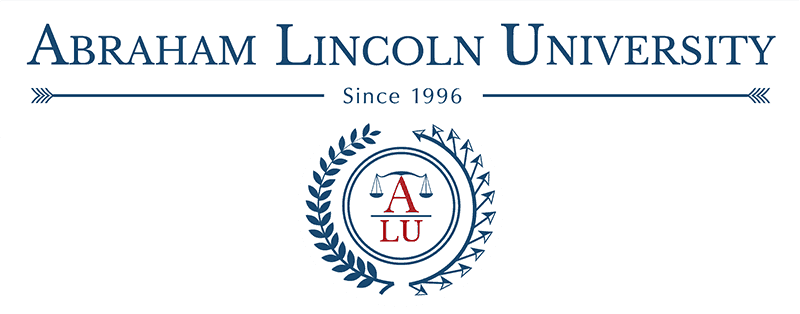Let’s face it: most fresh graduates have no idea what life is like after college.
No matter what program you choose, whether it’s a business degree, a law-related certification, or something in between, the newly-graduated, in general, are often clueless when it comes to what to expect after their last final. This uncertainty and lack of knowledge can sometimes result in fresh grads subjecting themselves to office environments that are explicitly violating employment laws.
These employment violations come in many forms and may also occur in different stages of employment, from the hiring process, through actual employment, and possibly leading up to one’s termination. Developing a sense of being able to identify when employers are committing employment law violations is one crucial aspect to maintaining a healthy work environment. When the time comes to fight for your rights after being wronged by your employer, this understanding will be essential to back-up your claims.
You can file an employment law case if you feel like you, fellow alum, or an acquaintance has been or is being mistreated on their first job. Although every situation will be unique and may require more legal research due to specific circumstances, here are some scenarios and guidelines that outline the ins and outs of inappropriate work conduct in the event that you believe your rights are being violated in your workplace.
Discrimination
According to existing federal and California laws,discrimination has no place in the workplace. On a federal level, Title VII of the Civil Rights Act of 1964 forbids employers from discriminating against job applicants and employees on the basis of race, skin color, sex, religion, and national origin. In California, the Fair Employment and Housing Act (FEHA) protects job applicants and employees based on an array of factors such as race, gender, sexual orientation, religion, disability, and others.
Types of Discrimination
1. Age
Age discrimination occurs when an applicant or employee over the age of 40 experiences discriminatory treatment because of their age. In other words, workers who are equally or more qualified than other candidates should not be refused employment, nor should they be fired after reaching a certain age.
2. Race
Racial discrimination occurs when employees or applicants are discriminated against because of their race, skin color, national origin, or ancestry. Employers are also not allowed to discriminate based on an employee or applicant’s association with members of another race, skin color, national origin, or ancestry.
3. Religion
It is unlawful for employees and job applicants to be discriminated against because of their religious beliefs. If a religious belief or observance interferes with work duties or job schedules, employers are expected to make adjustments in order to accommodate the employee’s religious obligations.
4. Sex
While “sex” normally refers to an individual’s gender, the word “sex” in this context has a connotation that is suggestive of discrimination based on physical gender, gender identity, gender expression, sexual preference, and orientation among others.
5. Pregnancy
Federal and California anti-discrimination laws prohibit female employees from being discriminated against or getting fired due to their pregnancy. While there are no laws that require employers to pay for their employees during maternity leave, they are entitled to twelve weeks away per twelve-month period without putting their position with the company at risk.
6. Physical Disability
A physical disability is any physical condition, cosmetic disfigurement, or anatomical loss that prevents a person from functioning properly or participating in activities that most average adults partake in. Both employees and job applicants have the right to be free from discrimination because of their physical disabilities if they do not prevent them from fulfilling the needs associated with their role.
7. Mental Disability
A mental disability is a psychological or mental condition that limits an individual’s ability to operate in a social or professional setting. Just like physical disabilities, both employees and job applicants have the right to be free from discrimination against them due to mental disabilities that do not interfere with their work within the company.
8. Military Status
Discriminating against active or veteran military service members is illegal in California. Employers who offer less lucrative compensation to an employee receiving veteran benefits violate the Uniformed Services and Reemployment Rights Act (USERRA).
Harassment
According to Title VII of the Civil Rights Act of 1964, no employer should discriminate against any employee based on their race, sex, religion, or nationality. Title VII also prohibits harassment based on a person categorized in a protected class. The statute is enforceable in both public and private sector organizations with fifteen or more employees and extends to the federal government, labor organizations, and employment agencies.
Types of Harassment
1. Sexual Harassment
Sexual harassment can be direct or indirect. Overt forms include unwanted and explicit sexual advances and sexual favors requested by colleagues. Some employees may feel uncomfortable when certain coworkers make inappropriate sexual jokes. Besides these, sexually provocative images such as computer screensavers and photos can be classified as subtle forms of sexual harassment, as well.
2. Disability Harassment
While harassing employees with disabilities is against the law, this is one form of workplace abuse that is still reported commonly even today. According to the Americans with Disabilities Act of 1990, employers cannot harass or discriminate against employees with disabilities who possess the qualifications and skills necessary for the job. This protection includes the preservation of equality in regard to hiring, salaries, promotions, termination, and benefits.
3. Racial Harassment
A hostile work environment is created when workers make offensive remarks about a specific race or ethnicity. California law prohibits employers and their employees from treating certain colleagues differently based on their ethnicity. Understand that even positive comments and light-hearted jokes about a particular race may be deemed offensive.
4. Religious Harassment
Some employees follow specific manners of dress or other day-to-day practices in honor of their religious beliefs. Employers are expected to make reasonable accommodations for such employees and are responsible for the protection of all employees from religious discrimination in the workplace.
5. Gender Harassment
Hiring a man over an equally qualified woman due to gender preference is considered to be a form of gender discrimination. Making jokes or remarks about someone’s ability to perform a task because of their gender can also be considered harassment. It is worth noting that members of the LGBT community are also vulnerable to similar types of harassment; it is imperative that employers learn about and combat gender harassment in the workplace.
6. Workplace Retaliation
When victims file a charge of harassment with their HR department, a government agency, or in court, they risk retaliatory actions from disgruntled bosses and co-workers. Such behavior is against the law. If you’ve experienced intimidation and other negative behavior because you have filed a formal complaint or due to an ongoing workplace harassment investigation, you can seek legal help.
Payroll Violations
In California, payday regulations have laws in place that support and uphold the rights of employees regarding their salaries. Among them includes Section 204 and 207 of the United States Labor Code.
Labor Code Section 204
This section of the labor code states that all wages earned by an individual through valid employment are due and payable twice during each calendar month. It also declares that labor performed between the 1st and 15th days, inclusive, of any calendar month shall be paid for between the 16th and the 26th day of the month during which the labor was performed. Labor performed between the 16th and the last day, inclusive, of any calendar month, should be paid for between the 1st and 10th day of the following month.
Labor Code Section 207
This section of the Labor Code states that every employer shall keep their employees updated and be given a notice specifying the regular paydays and the time and place of payment.
Wrongful Termination
In a scenario where an employer fires you for no reason, you may be the victim of wrongful termination. Fortunately, if this is the case, you’ve got options for recourse; wrongful termination creates an argument in your favor that may be substantial enough to be grounds for a lawsuit due in part to Title VII of the Civil Rights Act as well as FEHA. The downside, however, is that wrongful termination is a complicated area of law – the results can go either way.
An employer can terminate an employee for no reason, but only during specific situations. At-will employees, for example, can be fired without warning by their employers. An employer is also not required to inform an at-will employee any notice of his or her impending termination. Unless you have a contract with your employer stating that a notice period is required before termination, being an at-will employee means that your employer can freely terminate you for any reason and at any time. In the United States, most employment relationships are presumed to be “at-will”.
Can I Sue my Employer?
Your employer may appear to be untouchable, but if your rights have been compromised, this is simply not the case. A number of employment or labor laws including the Fair Labor Standards Act of 1938 are enforced to mediate the relationship between an employee and an employer.
Under these laws, lawsuits can be filed against employers if employees feel like they’ve been discriminated, harassed, wrongfully terminated, or have been injured in the workplace due to an employer’s negligence. Even as a new employee and a fresh graduate, do not be afraid to question the status quo if an aspect of their new workplace is putting them at unease. It is always worthwhile to look into your options and potentially file a lawsuit against your employer if it means maintaining a healthy workplace environment.
Brandon Chang is an employment law attorney at Mesriani Law Group who specializes in cases involving Harassment, Discrimination, and Retaliation in the workplace. He obtained a J.D. from Whittier Law School and is a contributing member of the California Employment Lawyers Association.






